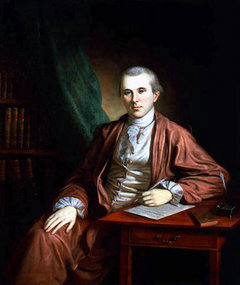 There is some good in adversity I suppose. I often hear the statement that “What doesn’t kill you will make you stronger!” Yet, most sane people I know would rather avoid pain and adversity if possible. There are examples, however, of adversity making people stronger to serve the purposes of God: Take John Bunyan for instance. He was arrested in 1660 for preaching without a license. In prison, he began writing his great book Pilgrim’s Progress. Then there is Alexander Solzhenitsyn. The communists imprisoned him for criticizing them. While suffering in the Gulag (concentration camp), he wrote poems in his head, which he later was able to publish and eventually he wrote the Gulag Archipelago based on his experiences. Consider the story of Joseph in Genesis. First in slavery and then in prison Joseph learned to forgive, to persevere, and perhaps a good dose of humility. These lessons and the hand of God brought Joseph to Pharaoh’s attention and placed him in a position to save his family from starvation.
There is some good in adversity I suppose. I often hear the statement that “What doesn’t kill you will make you stronger!” Yet, most sane people I know would rather avoid pain and adversity if possible. There are examples, however, of adversity making people stronger to serve the purposes of God: Take John Bunyan for instance. He was arrested in 1660 for preaching without a license. In prison, he began writing his great book Pilgrim’s Progress. Then there is Alexander Solzhenitsyn. The communists imprisoned him for criticizing them. While suffering in the Gulag (concentration camp), he wrote poems in his head, which he later was able to publish and eventually he wrote the Gulag Archipelago based on his experiences. Consider the story of Joseph in Genesis. First in slavery and then in prison Joseph learned to forgive, to persevere, and perhaps a good dose of humility. These lessons and the hand of God brought Joseph to Pharaoh’s attention and placed him in a position to save his family from starvation.
There are certainly many other examples that could be written about. The Lord, however, provides us with many encouragements in the Scriptures to hold on to as anchors of hope when adversity comes our way. One of my favorites is “And we know that for those who love God all things work together for good, for those who are called according to his purpose.” (Romans 8:28) A few of many helpful Bible verses in times of trial are listed below:
Proverbs 3:5-6
Trust in the LORD with all your heart, and do not lean on your own understanding. In all your ways acknowledge him, and he will make straight your paths.
Proverbs 18:10
The name of the LORD is a strong tower; the righteous man runs into it and is safe.
Isaiah 41:10
[F]ear not, for I am with you; be not dismayed, for I am your God; I will strengthen you, I will help you, I will uphold you with my righteous right hand.
John 14:27
Peace I leave with you; my peace I give to you. Not as the world gives do I give to you. Let not your hearts be troubled, neither let them be afraid.
John 16:33
I have said these things to you, that in me you may have peace. In the world you will have tribulation. But take heart; I have overcome the world.”
Filed under: Bible, Christianity, Devotional, Evil, Faith, Grace, History, Holy Spirit, Jesus Christ, Philosophy, Politics, Prayer, Satan | Tagged: Aleksandr Solzhenitsyn, Alexander Solzhenitsyn, Book of Genesis, God, Gulag, Gulag Archipelago, John Bunyan, Joseph, Justice, Pharaoh, Pilgrim's Progress, Politics, Socialist Left | 2 Comments »






































































